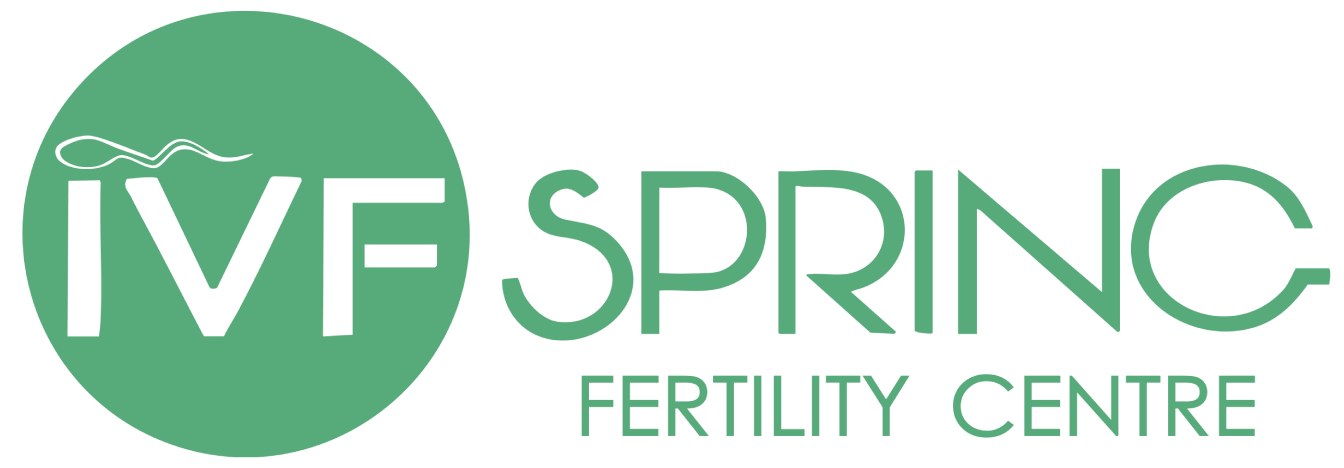Making a choice between IUI and IVF can feel overwhelming when you’re hoping to start or grow your family. Both treatments have helped thousands of couples achieve their dream of parenthood, but they work in different ways. Let’s walk through everything you need to know so you can make the best choice for your unique …
Making a choice between IUI and IVF can feel overwhelming when you’re hoping to start or grow your family. Both treatments have helped thousands of couples achieve their dream of parenthood, but they work in different ways. Let’s walk through everything you need to know so you can make the best choice for your unique situation.
Taking time to care for yourself, to check in on your health, is not selfish—it's the foundation for everything else in life. When you prioritize your well-being, you have more energy, more clarity, and more strength to give to the people and things that matter to you.
Understanding IUI and IVF: A Clear Explanation
IUI (Intrauterine Insemination) is often called the “gentle approach” to fertility treatment. During your natural ovulation cycle (or with mild fertility medications), we carefully prepare your partner’s sperm in our lab to concentrate the healthiest, most active sperm. Then, using a thin, flexible catheter, we place these prepared sperm directly into your uterus. This bypasses the cervix and gives sperm a head start on their journey to meet your egg.
Think of IUI as removing some of the obstacles that might prevent pregnancy naturally. The sperm still need to swim to your fallopian tubes, find your egg, and fertilize it on their own. Your body does most of the work, and we simply provide assistance.
IVF (In Vitro Fertilization) takes a more hands-on approach. We stimulate your ovaries with hormones to produce multiple eggs, then retrieve these eggs through a minor procedure. In our specialized laboratory, we combine your eggs with your partner’s sperm, allowing fertilization to occur outside your body. We then carefully monitor the developing embryos and transfer the healthiest ones back into your uterus.
With IVF, we have more control over the entire process. We can see fertilization happen, watch embryos develop, and even test them for genetic conditions before transfer. This comprehensive approach often leads to higher success rates.
Success Rates: Setting Realistic Expectations
We believe in giving you honest, realistic information about your chances of success. Here’s
what current research shows:
IUI Success Rates:
● Overall: 5-20% per cycle
● Under 35 years: 10-20% per cycle
● 35-40 years: 5-10% per cycle
● Over 40 years: 2-5% per cycle
IVF Success Rates (with your own eggs and sperms):
● Under 35 years: 40-50% per cycle
● 35-37 years: 30-40% per cycle
● 38-40 years: 20-30% per cycle
● Over 40 years: 5-15% per cycle
These numbers represent live birth rates, which is what matters most to you. Remember that most successful IUI pregnancies happen within the first three to four attempts. If IUI doesn’t work after several cycles, IVF often becomes the next step.
Your individual chances depend on many factors including your age, fertility diagnosis, overall health, and how your body responds to treatment. During your consultation, we’ll discuss what these statistics mean for your specific situation.
Cost Comparison: Planning Your Investment
We know that fertility treatment is a significant financial commitment for most families. Here’s what you can expect:
IUI Costs:
● Much cheaper than IVF
● Includes monitoring, medications, and the procedure
● Most couples try 3-4 cycles before moving to IVF
IVF Costs:
● More expensive than IUI.
● Includes all medications, monitoring, egg retrieval, and embryo transfer
● Additional costs may apply for embryo freezing or genetic testing
While IUI appears more affordable initially, many couples end up spending similar amounts if they need multiple IUI cycles. We’ll help you create a financial plan that works for your family’s budget and goals.
The Procedures: What You Can Expect
IUI at Spring Fertility Centre: A Simple, Gentle Process
Your IUI journey typically begins with baseline monitoring through blood tests and ultrasounds. You may take fertility medications like Clomid or Letrozole to help you ovulate, though some women use their natural cycles.
We’ll monitor your cycle closely with ultrasounds to track your follicle development. When your follicles are ready, you’ll receive a trigger shot to time ovulation precisely.
On the day of your IUI, your partner provides a semen sample, which we process in our lab for about an hour. This washing process removes seminal fluid and concentrates the most motile sperm.
The actual IUI procedure is quite simple. You’ll lie on an examination table similar to during a pap smear. Using a speculum, we’ll visualize your cervix and gently insert a thin catheter through your cervical opening into your uterus. The prepared sperm are then slowly injected through this catheter.
The entire procedure takes about 5-10 minutes and feels similar to a pap smear. Most women experience only mild cramping. You can return to normal activities immediately afterward.
IVF at Spring Fertility Centre: A Comprehensive Journey
Your IVF cycle begins with ovarian stimulation. You’ll take hormone injections daily for about 8-12 days to encourage your ovaries to produce multiple eggs. We’ll monitor your response through regular blood tests and ultrasounds.
When your follicles reach the right size, you’ll receive a trigger shot to mature the eggs. About 36 hours later, we’ll perform the egg retrieval procedure.
Egg retrieval is done under conscious sedation for your comfort. Using ultrasound guidance, we insert a thin needle through your vaginal wall to aspirate eggs from your ovarian follicles. This takes about 20-30 minutes, and you’ll rest in recovery for a few hours before going home.
While you’re recovering, our embryologists are hard at work in the lab. They’ll fertilize your eggs with your partner’s sperm and monitor the embryos’ development over the next 3-5 days. The embryo transfer is surprisingly gentle. Similar to IUI, we use a thin catheter to place one or two embryos directly into your uterus. This procedure requires no anesthesia and takes just a few minutes.
Who Should Consider IUI?
IUI might be the right starting point if:
● You have open, healthy fallopian tubes (essential for IUI success)
● Your partner has mild male factor infertility
● You’re experiencing unexplained infertility
● You have cervical factor infertility
● You need donor sperm
● You have mild endometriosis
● You’re comfortable starting with a less invasive approach
IUI works best when the basic building blocks are in place – healthy eggs, adequate sperm, and open fallopian tubes. It’s often an excellent first step for couples who want to try a gentler approach before considering more intensive treatments.
Who Should Consider IVF?
IVF might be your better option if:
● You have blocked, damaged, or absent fallopian tubes
● Your partner has severe male factor infertility
● You have moderate to severe endometriosis
● You’re over 35 and want to maximize your chances
● You’ve tried IUI 3-4 times without success
● You want genetic testing of embryos
● You have diminished ovarian reserve
● You have a history of recurrent pregnancy loss
IVF is particularly beneficial when there are specific obstacles to natural conception or when you want the highest possible success rates per treatment cycle.
Making Your Decision: A Personal Choice
Here are some important questions to consider as you make your decision:
Medical Factors: What does your fertility evaluation reveal? Your diagnosis will often point toward the most appropriate treatment.
Time Considerations: Are you comfortable with potentially needing multiple cycles, or do you prefer maximizing your chances with each attempt?
Age Factor: If you’re over 35, time becomes more important, and IVF’s higher success rates might be worth considering sooner.
Financial Planning: Consider not just the immediate cost, but your total budget for fertility treatment.
Emotional Readiness: Which approach feels more manageable for you and your partner?
Lifestyle Factors: Can you accommodate the more intensive monitoring that IVF requires?
Your Next Steps: We’re Here to Help
The best way to decide between IUI and IVF is through a detailed consultation with our fertility team. We’ll review your medical history, discuss your goals and concerns, and help you understand which treatment gives you the best chance of success.
During your consultation, please bring:
● Your partner (if you have one)
● A list of all your questions
● Any previous fertility test results
● Your medical history and current medications
We’ll take time to explain everything thoroughly, answer all your questions, and never pressure you into any decision. This is your journey, and we’re here to support whatever choice feels right for you.








